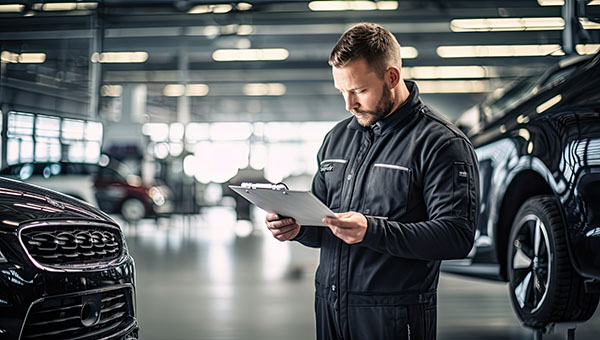
We've all experienced it at some point—those high-pitched squeals emanating from our car's brakes as we come to a stop. While it can be annoying, brake squealing is usually a signal that something is amiss with your braking system. Here are some of the common reasons behind brake squealing and what you can do to address this issue.
1. Worn Brake Pads
One of the most common reasons for brake squealing is worn brake pads. Over time, the friction material on your brake pads wears down, and when it gets thin, it can cause the brake pad's wear indicator to come into contact with the rotor. This results in that distinctive squealing sound. Regular brake pad maintenance and replacement when necessary can prevent this issue.
2. Glazed Brake Pads
Sometimes, brake pads can become glazed due to excessive heat or harsh braking. Glazed brake pads have a smooth, shiny surface that reduces their ability to grip the rotor effectively. This can lead to squealing and reduced braking performance. Resurfacing or replacing the brake pads can resolve this problem.
3. Rotor Issues
Brake rotor irregularities, such as scoring or warping, can lead to brake squealing. These issues can cause the brake pads to vibrate, resulting in noise. Proper rotor maintenance or replacement, as recommended by your mechanic, can help alleviate this problem.
4. Contaminated Brake Pads
Contaminants like oil, grease, or brake fluid on the brake pads can reduce their friction and cause squealing. Avoiding spills and ensuring a clean working environment can help prevent this issue.
5. Weather Conditions
Weather can also play a role in brake squealing. Moisture and humidity can lead to surface rust on the rotors, which can generate noise until the rust is worn off during regular braking. Squealing during or after rain or high humidity is typically temporary and not a cause for concern.
6. Low-Quality Brake Pads
Using low-quality or generic brake pads can contribute to brake squealing. Investing in high-quality brake pads designed for your vehicle can reduce the likelihood of this issue.
What Can You Do?
If your brakes are squealing, it's essential to address the problem promptly to ensure your safety on the road. Here are some steps to consider:
- Visual Inspection: Start by visually inspecting your brake pads. If they appear worn or glazed, it's a good idea to replace them.
- Rotor Inspection: Check your rotors for any visible damage, scoring, or warping. Resurfacing or replacement may be necessary.
- Brake Pad Replacement: If you determine that your brake pads are the issue, have them replaced with high-quality, manufacturer-recommended pads.
- Seek Professional Help: If you're unsure about the cause of the squealing or if it continues after addressing the above factors, consult with a qualified mechanic. They can provide a thorough inspection and recommend the appropriate repairs.
While brake squealing can be unsettling, it's typically a solvable issue with proper maintenance and attention. Regular inspections and using quality components can go a long way in keeping your brakes silent and your stopping power efficient. Remember that safety should always be a top priority when it comes to your vehicle's braking system.
At Hometown Tire and Auto, your safety is our top priority. We offer a range of brake services and repairs that’ll ensure you’re safe on the road.